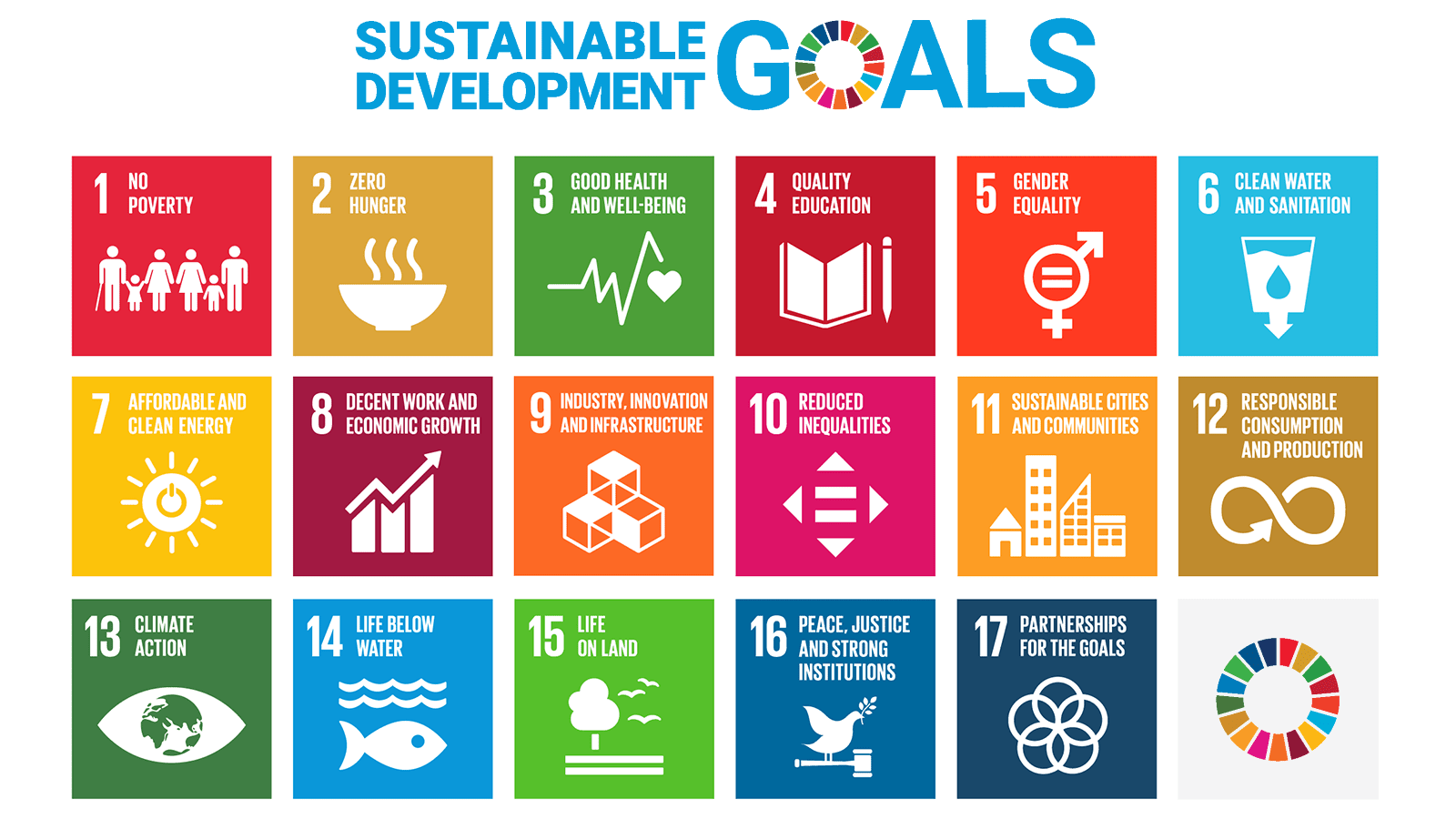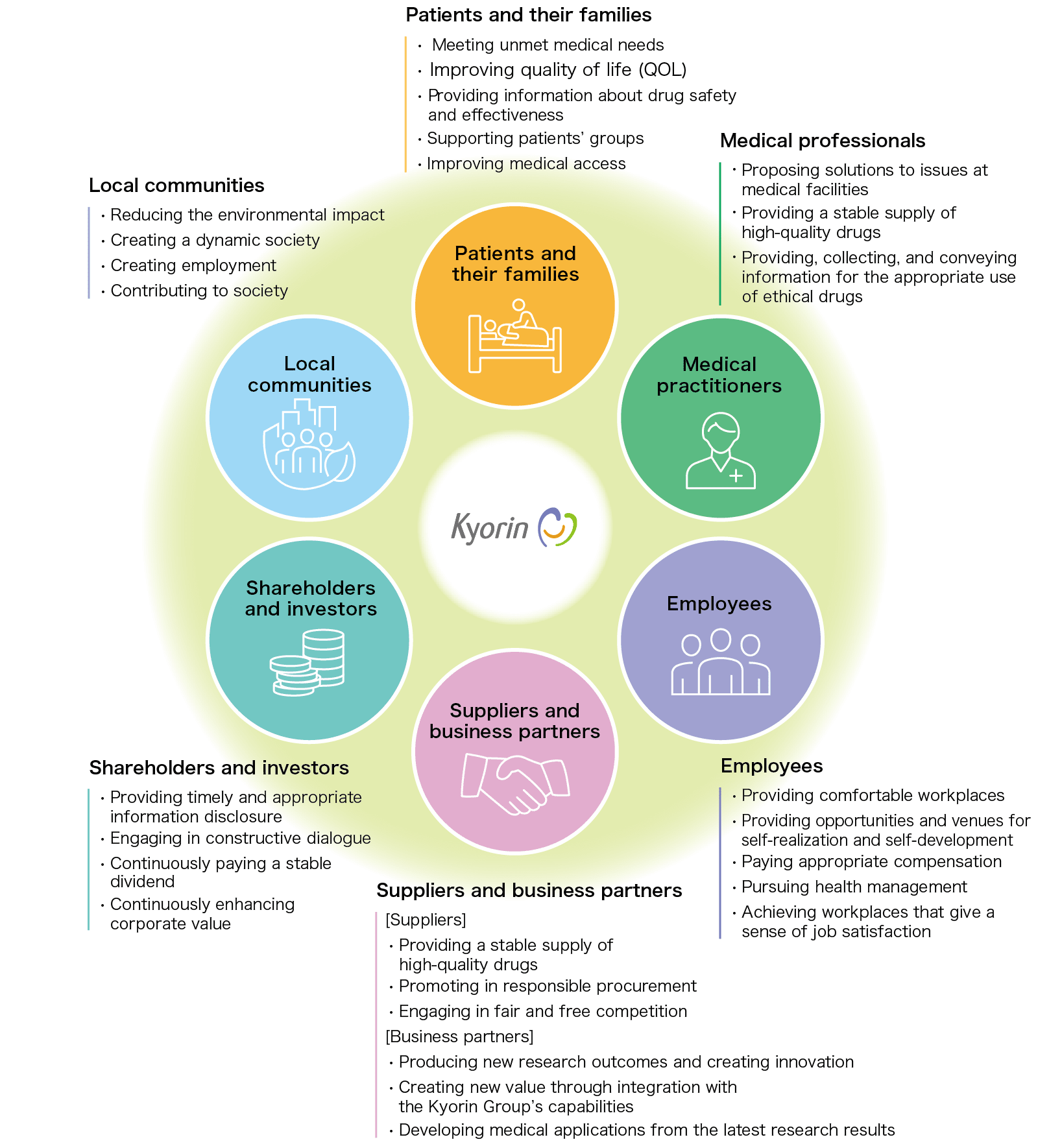Top Message
The Kyorin Group is working to realize the corporate philosophy “Kyorin continues to fulfill its mission of cherishing life, and benefiting society by contributing to better health“.
Based on its corporate philosophy “to cherish life and benefit society by contributing to better health,” the Group have decided to formulate a new long-term vision “Vision 110” and aim to become “a company that contributes broadly to people's health by comprehensively developing healthcare-related businesses, with a core focus on the new drug business, which continuously provides high-value new drugs that meet medical needs”.
While there are various social issues to be solved, the sustainable growth of a company (economic value) and the realization of a sustainable society through business activities (social value) are becoming more and more important. The Group develops and provides useful and safe products and services by developing a combination of the ethical drug business and the healthcare business, which are our core businesses and we will contribute to sustainable economy growth and resolution of social issues. We will also work to strengthen corporate governance in order to carry out sustainable business activities.
The Kyorin Group hopes to be a company that continuously contributes to the sustainable development of society and is recognized by society while communicating with stakeholders.
Your Health is Kyorin’s Mission.
KYORIN Pharmaceutical Co., Ltd.
Representative Director, President and Chief Executive Officer
Yutaka Ogihara

Basic policy on sustainability
Following our corporate philosophy, “Kyorin continues to fulfill its mission of cherishing life and benefiting society by contributing to better health,” the Kyorin group is proactively addressing sustainability issues for society’s continuous development through business activities based on our Corporate Charter, as we work to enhance corporate value over the medium to long term..
Designation of materiality
We have created a two-axis matrix of the various issues related to sustainability, with social importance as one axis and importance to the Kyorin Group as the other axis, and used this matrix to assign priorities to important issues. To achieve the goals of the long-term vision “Vision 110,” we have designated 10 important issues (materialities) as priorities to address from the perspectives of “value creation (issues directly connected to business activities)” and a “base to support value creation (issues related to a base for business activities).”
Corporate philosophy
Long-term vision
Vision 110
Materialities
(priority issues)
Medium-term business plan
Vision 110 –Stage1–
Policies and plans for each fiscal year
Designation of priority issues referencing social concerns

Value creation
materiality
- Creating high-value products that meet medical needs
- Maximizing value of products
- Providing a stable supply of high-quality pharmaceutical products
Base to support value creation
materiality
- Enhancing human capital
- Promoting work-style reforms that respect diverse values
- Promoting health management
- Carrying out environmentally friendly business activities
- Ensuring thorough compliance
- Strengthening corporate governance
- Strengthening relationships with stakeholders
Process for designation materiality
Materiality is designated by the following process, based on the Kyorin Group’s forward-looking environment outlook and analysis and referral to various principles and guidelines.
These issues are continuously reviewed in light of environmental changes, the Kyorin Group’s business activities and demand of society.
-
1. Identification of issuesIssue are identified based on various principles and guidelines (including ISO 26000, the UN’s Sustainable Development Goals, and the materiality map for the healthcare industry formulated by the Sustainability Accounting Standards Boards,
-
2. Narrowing drown issuesIdentified issues are narrowed down in light of the Group’s corporate philosophy, long-term vision, etc.
-
3. Assignment of priorityIssues of particularly high priority are identified using a matrix with two axes-importance to society and importance to the Group.
-
4. Designation of materialityIssue identified as important for materiality are deliberated by the Management Committee and resolved by the Board of Directors.
Materiality
Corporate philosophy
Value creation
| Materiality | KPIs (by fiscal 2025) | Fiscal 2024 results | Related SDGs |
|---|---|---|---|
|
|
|
|
|
|
|
|
|
|
|
Base to support value creation
| Materiality | KPIs (by fiscal 2025) | Fiscal 2024 results | Related SDGs |
|---|---|---|---|
|
|
|
|
|
|
|
|
|
|
|
|
|
|
|
|
|
|
|
|
|
|
|
|
|
|
|
The following is the detail for Initiative for Value creation materiality.
The following is the detail for Initiative for Base to support value creation materiality.
SDGs (Sustainable Development Goals)
The SDGs are a series of international goals targeted for achievement by 2030 adopted at the 2015 United Nations Summit. The Kyorin Group has incorporated these goals into its business practices and eff orts to co-exist with society, and works to contribute to the realization of a sustainable society.

Sharing Value with Stakeholders
Innovative activities are needed to create social value and economic value. We consider dialogue (engagement) with all stakeholders an essential part of that process.
We are carrying out initiatives to address the requests and expectations of all stakeholders by clarifying the value we provide and utilizing opportunities for dialogue, with all Group employees working as one to create and share value.
Sharing value with stakeholders

Dialogue with stakeholders
| Initiatives for sharing value with stakeholders | Main venues and frequency of dialogue | |
|---|---|---|
|
Patients and their families
|
|
|
|
Medical practitioners
|
|
|
|
Employees
|
|
|
|
Suppliers(including pharmaceutical wholesalers)
|
|
|
|
Business partners(joint research partners, joint development partners, other partners)
|
|
|
|
Shareholders and investors
|
|
|
|
Local communities
|
|
|


